Description
ANIMA MUNDI has explored the olfactory notes of some of the greatest Civilizations of the past. Scents tell us about the emotions of these Civilizations better than any other artwork; smell is the most inner and deep sense, it is the only one in direct contact with our Soul. Close your eyes and allow Anima Mundi go inside of you and let it transport you into the essence of 5 great ancient civilizations. We have been pursuing millennia of history to regain the universal myth and the Treasure of lost knowledge belonging to the greatest and fascinating civilizations of the past. The destiny of humanity came from them. It is a heritage of spiritual and civil teachings, symbols, customs and all the smells that we want to safe and transmit with this exclusive olfactory search project.
NEW ANIMA MUNDI | TRISKELL
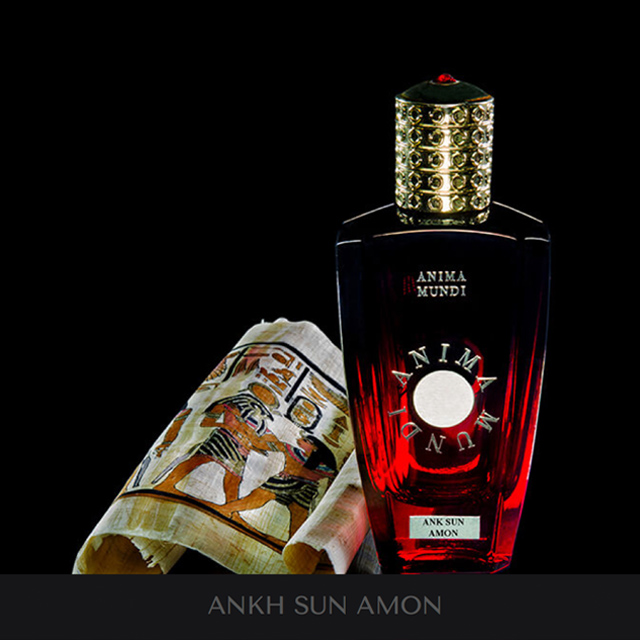
ANKH SUN AMON (finalist “the Art and Olfaction Awards 2018)
Spirit of Ancient Egypt. A mysterious, seductive scent, rich of precious and rare components that recall ships full of resins, great quantities of myrrh, incense and opoponax coming from Arabia, still living in the secrets of the pyramids. Ancient Egyptians ruled the world according to the teachings of Maat, the god of justice and cosmic order, and Thot, the god of wisdom who also presided over the art of perfume composition. Nefertem, represented with a lotus flower on his head, was the real god of perfumes. Cleopatra and Hatsepsuit Queen were great estimators of oils and essences.
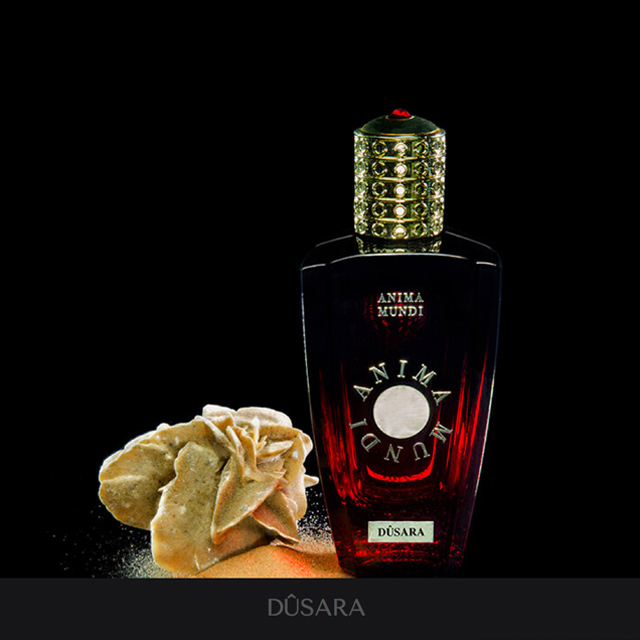
DUSHARA
The hidden city of the Nabateans: Petra. Petra is one of the Seven Wonders of the World. It was one of the most important places for the commerce of Incense and Myrrh: nabatean people were very jealous of the secret of those materials, and they spread the legend that the Incense Trees were protected by wings monsters. Petra was the Hidden City: it was impossible to find because protected by the Siq, the canyon by which you can get to The Treasure. Ancient smells of incense, resins, spices and a very hidden oud: a fragrance that talks about History, nature, desert.
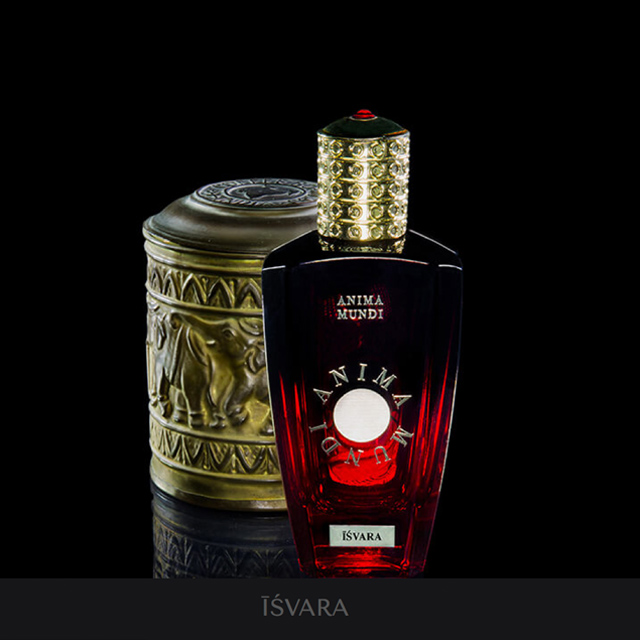
ISVARA
Mystic India. Ancient India and its intriguing mysteries, ancestral rhythms, spices and sparkling colors that decorate the dusty streets: this is the inspiration of ISVARA a perfume that envelops all senses, quietens minds and fascinates hearts. Ayurveda’s Healthy Practices are traditionally linked to Hindu religion, encompassing fumigation’ practices and the use of aromatic herbs and oils of healthy properties. In the Indian language from Sanskrit, “love” and “perfume” seem inextricably linked. “Mana” means “joining in marriage” but also “emote a fragrance”. Exotic components of ancient traditions, spices, incense and saffron notes: a meditative and vibrational fragrance.
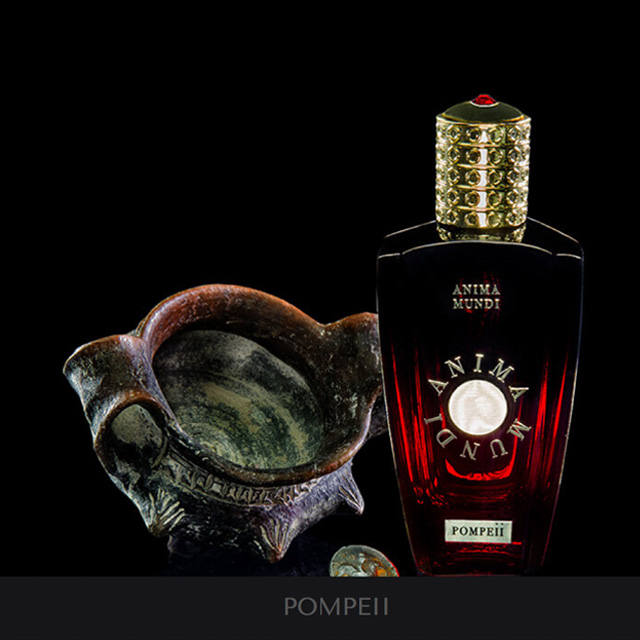
POMPEÏ
The suggestion of Vesuvio. The archeological site of Pompei still reminds the ancient times of Roman High Society: new wonderful villas are recently discovered in this area. The fragrance talks about the ancient drawings found in the Palaces: we dream about the fantastic gardens. Cicerone, the ancient famous roman philosopher, wrote that romans used to spend few hours during the day in order to elevate the soul. A green smell of trees, flowers, aromatic plants, citrus and the ozonic notes of the sea of mediterranean sea.
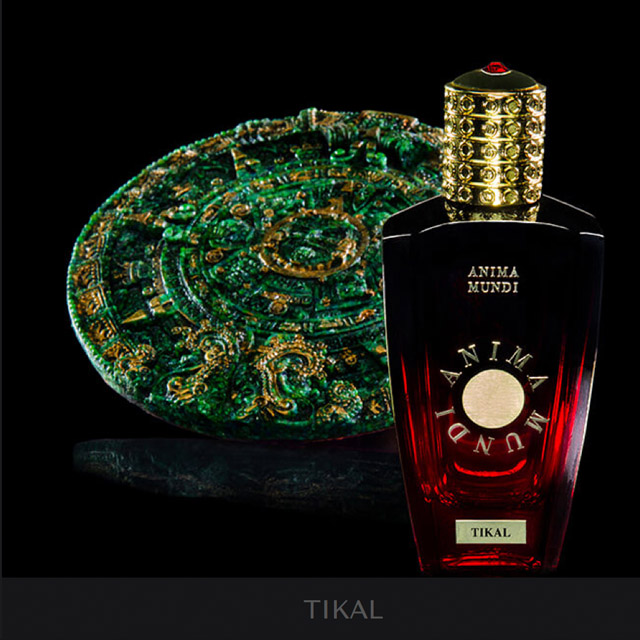
TIKAL
The mysterious Maya civilization. Arts and science of ancient Mayan civilization are considered the highest and most sophisticated cultural expression of all the civilizations of Mesoamerica. This fragrance ells of places and legends, flavors and aromas and its inspired by ancient knowledge and testimonies kept on the walls of the archaeological sites and between the pages of the four mayan Codes written in wood, TIKAL is a fragrance of innumerable contrasts and suggestions. Strong fougere notes favor all senses and take us into a lush forest, while Fava tonka let us dream about uses and customs of a people enveloped by great mysteries.
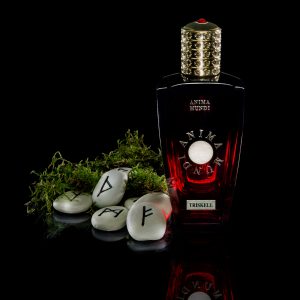
TRISKELL
Who were the Druids? Their legacy is the most enduring and most mysterious Today the word conjures thoughts of magic, wizardry, and spiritualism, but in ancient times the definition of Druid was much broader. During the Iron Age, the Druids made up the higher-educated tier of Celtic society, including poets, doctors, and spiritual leaders. The legacy of this last group is the most enduring and the most mysterious.
The word “Druid” derives from the Latin “druidae” and from from Gaulish “druides”. It is also thought to stem from a Celtic compound of “dru-wid” “dru” (tree) and “wid” (to know), which reflects the importance of tress in Celtic spirituality and Symbols.



